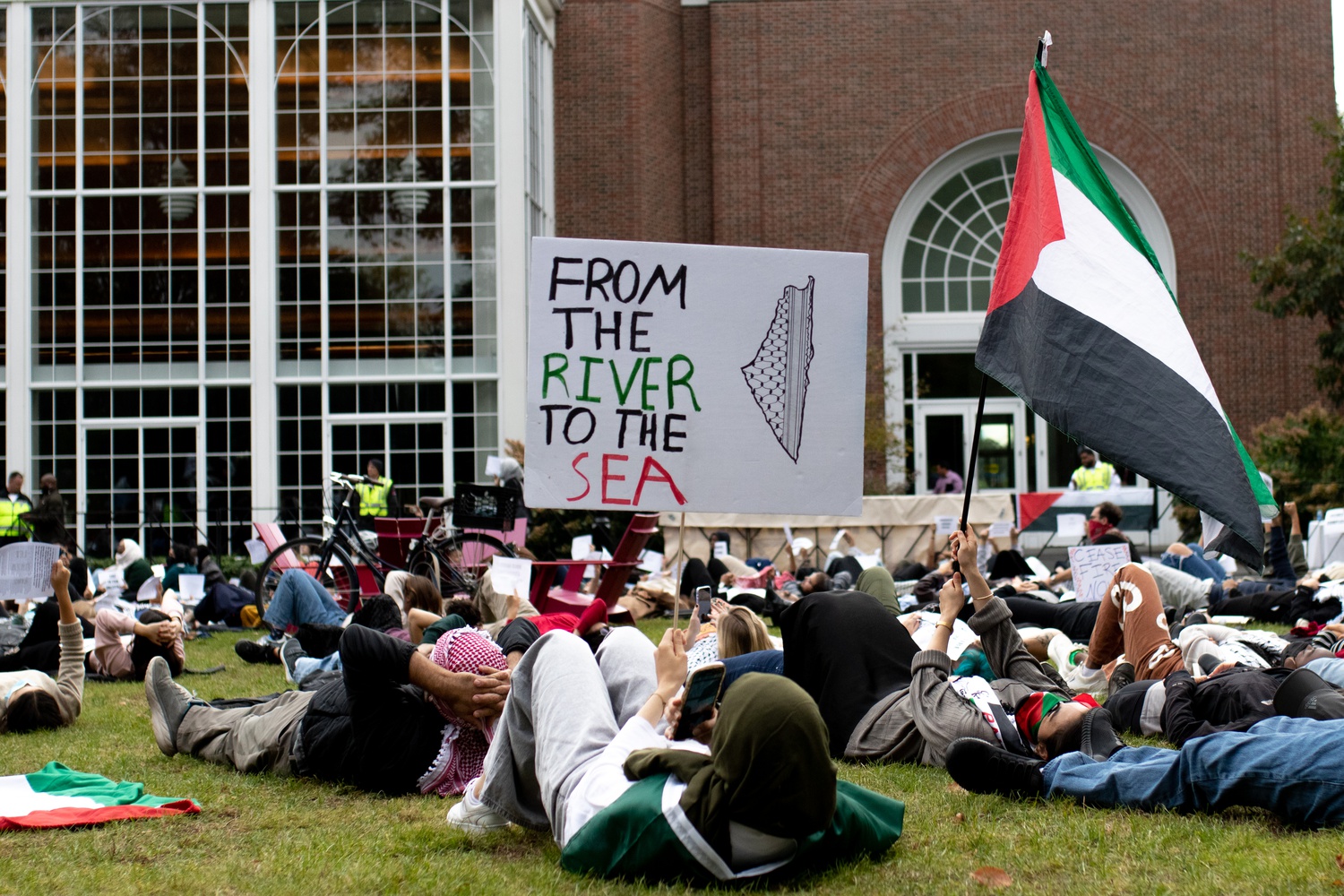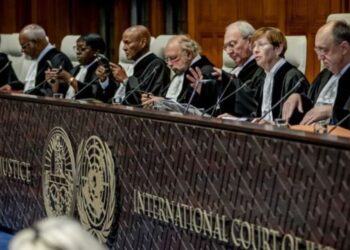Human Lives Human Rights: The U.S. government, led by Donald Trump, has suspended $2.2 billion in federal funding for Harvard University. Additionally, contracts worth $60 million have also been halted. The stated reason for this action is to “combat anti-Semitism” and respond to protests by students at the university in support of Palestine. What is presented as a fight against discrimination is, in reality, a broad effort to limit freedom of expression and suppress dissenting voices against Israel’s policies.
Havard: American Style Democracy
The actions of the Trump administration in suspending federal funding for Harvard University raise concerns about academic freedom and human rights in the United States, highlighting their vulnerability.
Harvard University, as one of the most prestigious academic institutions in the world, is under unprecedented pressure from the federal government due to support from some students and academic groups for Palestine and protests against the war in Gaza. This pressure includes not only budget cuts and the cancellation of research contracts but also demands from the government for changes in faculty composition, admissions policies, restrictions on student clubs, and even a ban on wearing masks (a symbol of the protesters). Alan Garber, the president of Harvard University, stated that these government actions not only contradict the principles of academic freedom and the First Amendment of the U.S. Constitution but also pose a threat to the nation’s intellectual health, economic security, and innovation.
While the U.S. government frequently intervenes in other countries citing human rights—through sanctions and regime changes—it adopts a strict and politically charged approach to fundamental concepts such as freedom of expression, the right to assemble, and academic rights within its own borders. Student protests in support of the Palestinian people are labeled as “anti-Semitism,” “terrorism,” or “illegal violence” rather than being viewed as part of civic engagement. Ironically, the same government considers protests in other countries as signs of democracy and the people’s right to oppose the government. However, within the United States, such actions, if critical of government policies or Israeli practices, are immediately classified as security threats.
The Trump administration’s demand for a review of the faculty composition, audits of faculty members’ views on diversity, and mandates for admissions based on “merit” (which critics argue is a code for eliminating racial diversity) is a clear attempt at political interference in the country’s educational system. These actions effectively violate the independence of academic institutions and could serve as a precursor to controlling the academic content taught in universities based on political considerations.
The U.S. has repeatedly accused countries like Iran, China, and Russia of suppressing civil liberties, intervening in their internal affairs under the pretext of defending human rights. Yet, the same government now threatens to detain and expel protesters on its own soil, calls for the identification and punishment of foreign students for participating in protests, threatens universities with the removal of tax-exempt status for not complying with political demands, and even converts vital university funding into a tool for political pressure. This stark contradiction exposes the duality of U.S. behavior regarding human rights, where support for Israel can easily sacrifice fundamental principles like freedom of expression, academic independence, and student rights.
Recent actions by the Trump administration against Harvard have not only raised profound concerns in U.S. academic circles but also reveal that academic freedom and human rights in America are more vulnerable than previously thought. When the world’s largest self-proclaimed democracy and freedom defender suppresses dissent, cuts university funding, and rewrites academic policies to align with political interests, it becomes difficult to take its claims about human rights globally seriously. This crisis represents a significant test for independent institutions, public opinion, and the academic community in America to determine whether they are willing to stand up against such academic authoritarianism.
What is happening today in America against Harvard is not merely a budgetary dispute or a political fight; it is a clear indication of the structural hypocrisy in Western human rights policies, especially those of the United States. In a country that has long claimed to “bear the flag of freedom,” it is alarming that a handful of students voicing support for Palestine can quickly mobilize the entire state apparatus against them. Trump, who has himself been accused of racism and financial and ideological ties to Zionist movements, now sanctions universities for what he calls “anti-Semitism.” But is supporting the struggling people of Gaza anti-Semitic? Or is exposing Israel’s crimes considered a crime? It is clear that what Trump and his Zionist supporters cannot tolerate is not ethnic hatred, but the truth—the truth of a crime called occupation, discrimination, massacre, and modern apartheid.
If even a single speech in one of Iran’s universities occurs with a seemingly restrictive approach, Western media immediately inundates the world with headlines like “Violation of Academic Freedom in Iran” or “Suppression of Protesting Students.” Yet these same media outlets exhibit a shameful silence in the face of blatant academic rights violations in the U.S. Neither the BBC, CNN, The New York Times, nor The Guardian has featured headlines regarding Harvard. None are asking how it is possible for a university’s funding to be cut solely due to its students’ political views. This is the double standard that independent nations and many free thinkers in the West have grown weary of—the standard in which the suppression of Palestinian protesters in America is deemed “defending security,” while holding an academic meeting in Tehran is considered “a violation of freedom of expression.” This is a standard by which Israel’s violence in Gaza is seen as “legitimate defense,” yet a student’s voice supporting the people of Gaza is classified as “hate speech.”
Recent events demonstrate that even Harvard, a symbol of knowledge, culture, and independent thought, can easily be removed from the circle of support if it does not align with political interests. Today, America has shown that science must also align with Israeli interests; otherwise, it faces elimination. Who would have believed that one day a government in the U.S. would dictate which student clubs should dissolve or which professors should be audited for their viewpoints? Or that wearing a mask, once a symbol of civil protest, could become a crime? These are not signs of authority but rather indications of fear of truth and freedom.
Today, the U.S. government—and especially the Zionist elements behind the scenes—fears not violence, but rather the awareness of the people, the truth about Palestine, and the oppression by Israel. They fear that a new generation, one that is educated, free-thinking, and globally aware, will no longer be deceived by fabricated narratives about the “only democracy in the Middle East.” They fear that Harvard, instead of remaining silent, will become the birthplace of a scholarly and political wave against occupation. This fear is what drives attacks on Iran, keeps Palestine besieged, and has now even reached the heart of American universities. But the truth cannot always be censored. Today, from Tehran to Boston, from Gaza to Harvard, voices are louder than ever in defense of the oppressed, and this is a voice that not even billions of dollars in funding can silence.


















